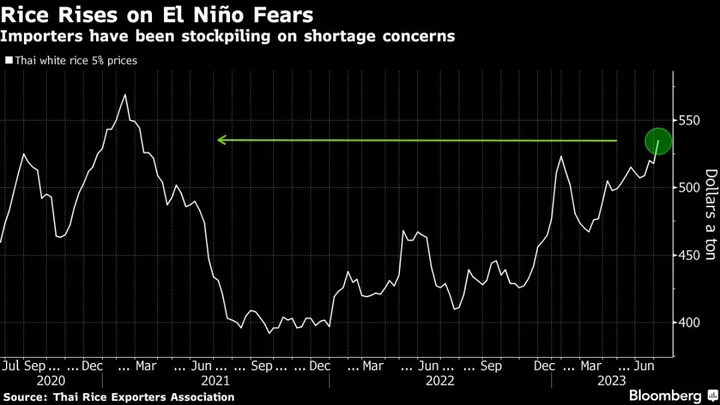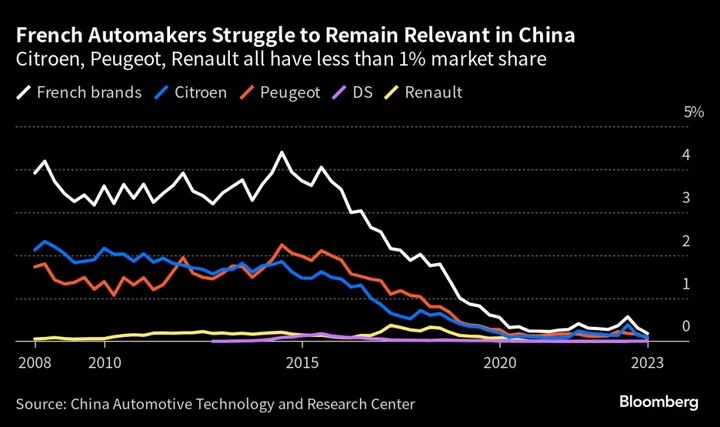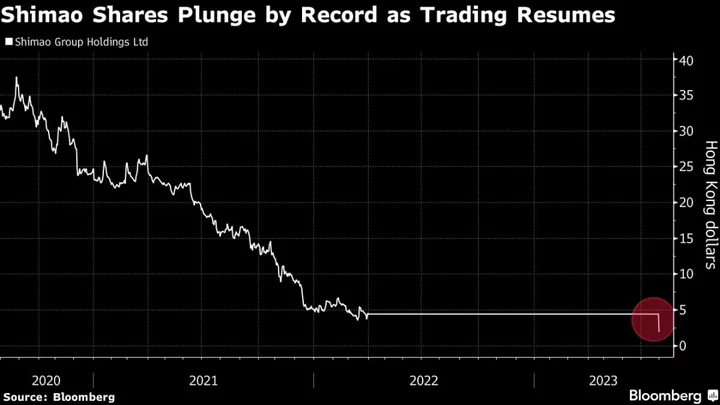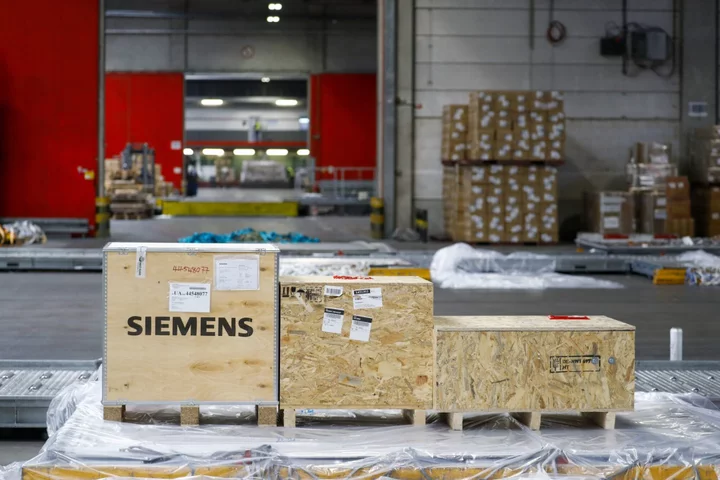Thames Water’s parent company may run out of money by April if shareholders don’t inject more equity into the debt-laden utility, its auditors have warned.
PricewaterhouseCoopers said there’s “material uncertainty” about whether the group can continue as a going concern because there are no firm arrangements in place to refinance a £190 million ($241 million) loan in one its the subsidiary companies.
Thames is expected to face scrutiny over its debt levels when it issues results on Tuesday, as investors question the embattled company’s financing structure. Parliament’s Environment, Food and Rural Affairs Committee said it’s considering calling executives in to explain whether they misled lawmakers about the company’s financial situation when they gave evidence in July.
“Recent revelations of Thames Water’s financial situation raise further concerns about the stability of the company’s finances,” Robert Goodwill, the panel’s chair, said in a statement on Friday.
The business may also breach an interest cover covenant on a separate £200 million loan by the same date “under a severe but plausible downside scenario,” PWC said. The disclosure was made in the 2022-23 accounts of Kemble Water Holdings, the top company in Thames’ byzantine ownership structure, and raises fresh concerns about the viability of the group.
Read more: Thames Water Braces for Further Scrutiny as Debt Pile Mounts
Thames, which provides water to millions of households in London and surrounding areas, is seen by the government as too big to fail. Earlier this year, chief executive officer Sarah Bentley was ejected and the government put on standby to take the core water business into temporary public ownership amid fears of a financial collapse.
Shareholders have pledged to support Thames, with a commitment in writing to inject £750 million of further equity into the group, but PWC said that “the letter is not legally binding and there are no other firm commitments to refinance the £190 million loan.”
The accounts also reveal that directors hope Ofwat, England’s water services regulator, will permit Thames Water to pay a dividend by way of “equity cure” up the corporate structure to avoid a breach of covenant. PWC said the directors “are uncertain” whether Ofwat will allow it.
Read more: Thames Water Announces 300 Job Cuts After Turbulent Year
The auditors’ comments underline how fragile the business is. The interest cover ratio has fallen to 1.1 times, just above the 1.05 times minimum, and debt gearing is extremely high at 84%, Kemble’s accounts show.
While shareholders have made commitments to shore up the business, the situation remains fraught. The owners, largely infrastructure funds, provided £500 million of new funding in March and promised £750 million of new equity in 2024, subject to certain conditions.
Ofwat has indicated that shareholders will need to put another £2.5 billion into the business between 2025 and 2030.
Read more: UK Pushing Pensions Into Private Equity Draws Industry Backlash
The call for more equity comes as shareholders are taking big losses on the existing value of the business. The Universities Superannuation Scheme, Britain’s biggest pension fund, which owns 20% of Thames, valued the asset at £5 billion in its most recent accounts.
In the more up-to-date Kemble accounts, however, the owners appear to have written down the business by £1.5 billion, or roughly a third.
The detail emerged in the revaluation of a shareholder loan to the group. Alongside their equity, shareholders had provided funding through £310 million of loan notes that have been accruing interest since 2017, the last time Thames paid any money out.
The notes had a “notional value” of £540 million, according to the accounts, but the investors bought them out “on the same terms” with a £374 million “inter-company loan” - a 30% discount.
The accounts state that “determining whether the group’s investments in subsidiaries have been impaired requires estimations of the investment or cash-generating unit’s net realizable value.” Kemble’s cash-generating unit is the regulated Thames Water operating company. Kemble declined to comment.
The transaction was completed the day before shareholders injected £500 million into the group through convertible loans. The debt, which accrues 8% interest, was passed down the company structure and put into the Thames Water operating company as equity, in keeping with commitments the shareholders had made.
“We are in a robust financial position and are extremely fortunate to have such supportive shareholders,” said a spokesperson for Thames Water Utilities Limited, the regulated operating company.
The accounts didn’t reveal the terms under which the shareholders’ loan notes convert to equity, but the decision to impair the business before issuing the convertibles suggests they may have been seeking protection against dilution in the event new outside shareholders are brought in.
--With assistance from Jessica Shankleman.









